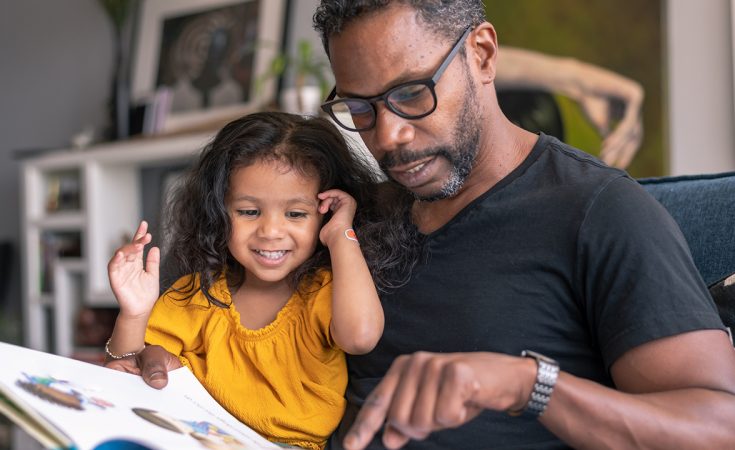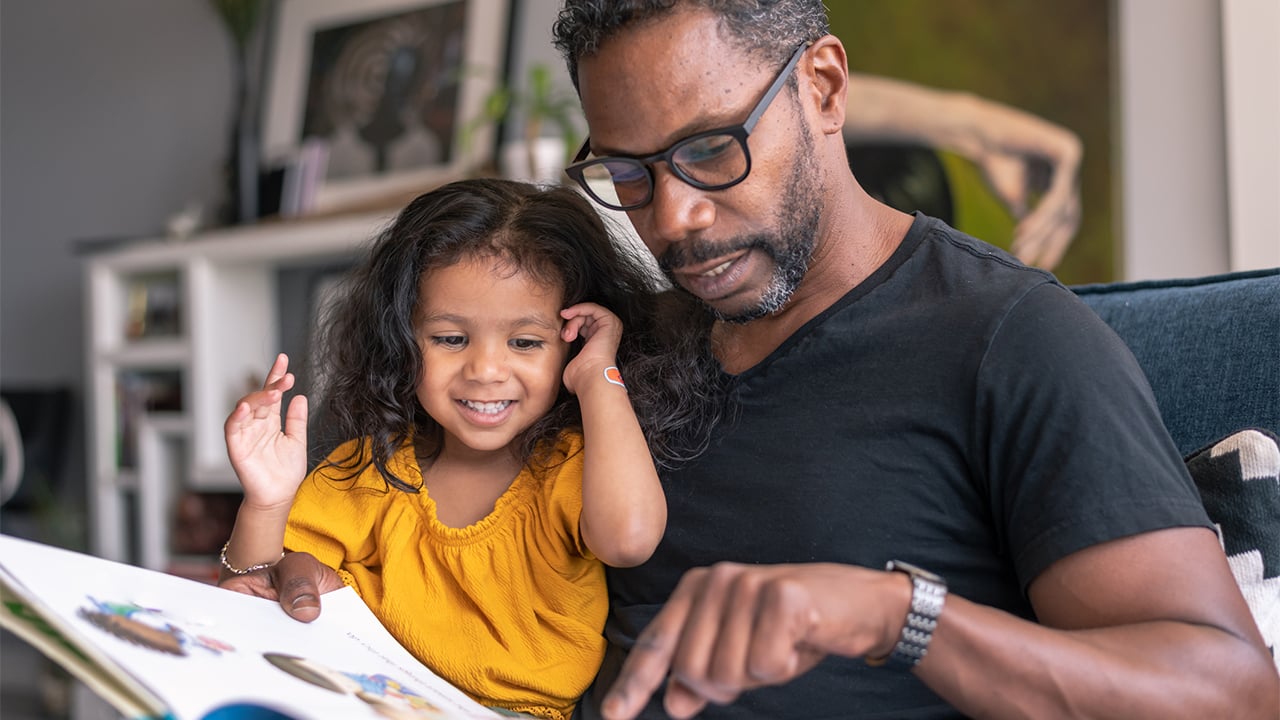When they’re starting to build fundamental reading skills at school, there’s lots you can do at home.
If your kid is in kindergarten or grade 1, they’re probably starting to bring books home from school to learn to read. Parents can play an important role in making the experience positive and helping them learn important decoding skills. It’s important to know that not all classrooms support decoding and phonics in the same way. These tips below from experts in structured literacy—a systematic way of teaching phonics and decoding skills—will help you support your kid as they’re learning to read.
1. Focus on sounding out, not guessing
When kids learn to read, they need to match letters or combinations of letters to sounds, explains Liisa Freure, a former elementary teacher and reading expert who trains teachers in structured literacy. “If they sound out or decode a word successfully a few times, then that word transfers into their sight vocabulary, which means when they see that word, they can remember what that word is, rather than having to sound it out each time.”
If your child is stuck on a word, don’t let them guess, says Alicia Smith, president of the International Dyslexia Association Ontario. “If they have learned how to decode it, help them sound it out.
If not, just tell them how, or tell them the word.” If you find your kid is consistently guessing based on context or pictures, cover up the picture or have them practice reading short, easily decodable words (like “cat,” “dog” or “sun”) that are not in context.
2. Don’t rush to books
“One of the biggest mistakes we can make is thrusting books at our kids and expecting them to read on their own before they’ve mastered letters and sounds—it’s putting the cart before the horse,” advises Smith. This can not only frustrate them, but also set them up for bad habits if they don’t yet have the skills to decode. “Don’t get too worried about whether your child is reading books or even sentences in kindergarten; help them grasp that connection between sounds and print.”
3. Look for decodable readers
The books in your kid’s classroom or that get sent home from school are typically levelled texts. The levels are determined by things like length of sentence and how many high-frequency words appear. In the English language, however, the highest-frequency words are also the oldest, which means their pronunciation has changed over the years and they are not very “decodable”— and that means kids can’t sound them out using conventional rules, explains Freure. Words like “said” and “talk” are good for a kid to recognize, but don’t actually help them solidify letter-sound relationships. When your child is ready, Hackett-Helmkay suggests finding decodable books online from the publishing house Flyleaf or the reading program SPIRE, or look for the Moon Dogs series, described as “catch-up readers.”
4. Get them curious about words
English can be a very complicated language to learn because it includes words from various languages, like German, Greek and Latin. Instead of saying, “Oh, English is so confusing, it makes no sense,” get them curious about different spellings and letter sounds, suggests Freure. For example, kids often wonder why the word “talk” has an “L” in it. Freure tells her students, Well, we’re telling a tale, and the words ‘tell’ and ‘tale’ both have an ‘L’ in them. The word ‘talk’ has an ‘L’ in it because it’s related to those other words.” Encourage your kid to find other strange spellings in a book and find out together (you can google it) what the origin (etymology) of the word is and why it’s spelled that way.
5. Teach them about suffixes and prefixes
“Every word has a base, and then we can add things to the base,” says Freure. Show your kid what common suffixes (like “s,” “ed” and “er”) and prefixes (“re,” “un” and “in”) look like and what they mean (this is called “morphology”). When your kid is faced with a longer word, they can look for these parts of words to help them figure it out.
6. Time it right
If your kid is struggling with learning to read, keep the sessions short and sweet and at a time when they’re not too overwhelmed. Avoid practicing when they’re tired, too. And don’t forget, all reading is reading, so look for opportunities around you to practice decoding, like a Pokémon card or the back of a cereal box.



































